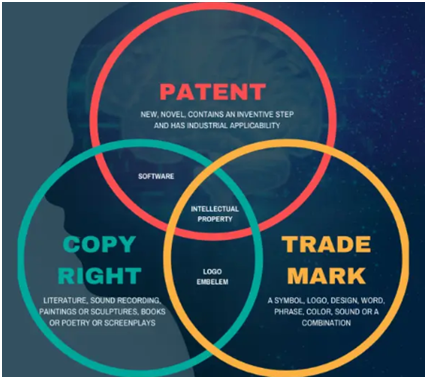Why in News?
- The Delhi High Court has issued summons to an Instagram account called People of India (POI), in a copyright infringement suit filed by the storytelling platform Humans of Bombay (HOB).
- Besides copyright infringement, HOB’s plea said that the similarities between the infringing content and its own amounted to “passing off and unfair competition”.
What’s in Today’s Article?
- What is Copyright and its Infringement?
- What is Passing Off?
- The Delhi HC’s Observation in the HOB vs POI Case
- What is Intellectual Property (IP)?
What is Copyright and its Infringement?
- “Copyright” refers to the right given by the law to creators of literary, dramatic, musical, and artistic works and producers of cinematograph films and sound recordings.
- It is a bundle of rights that includes rights of reproduction, communication to the public, adaptation, and translation of a work.
- The Copyright Act 1957 aims to safeguard creative works, which are considered to be the creator’s intellectual property (IP).
- A copyrighted work will be considered “infringed” only if a substantial part is made use of without authorisation.
- In cases of infringement, the copyright owner can take legal action against any person who infringes on or violates their copyright and is entitled to remedies such as injunctions, damages, etc.
- An injunction is an official order given by a law court, usually to stop someone from doing something.
- In HOB Stories Pvt. Ltd. vs. POI social media, the HOB was seeking an injunction restraining infringement of the copyright of its copyrighted content.
- However, an injunction only acts as a deterrent and does not mean that all alleged instances of misuse will be corrected immediately.
- This is because even when a court grants it, it is not easy to track all such cases and act on them.
What is Passing Off?
- Suppose a brand logo is misspelt in a way that is not easy for the consumer to discern. In such cases, the infringing products need not be identical.
- But the similarity in the nature, character, and performance of the goods of the rival traders has to be established, as laid down by the SC in Cadila Healthcare Limited vs. Cadila Pharmaceuticals Limited (2001).
- The court also said that passing-off is a species of unfair trade competition or of actionable unfair trading.
- By passing-off one person, through deception, attempts to obtain an economic benefit of the reputation which another has established for himself in a particular trade or business.
- Therefore, to make a claim of ‘passing off’, some form of deception, misrepresentation, or harm to the goodwill and reputation of the owner of a mark has to be established.
The Delhi HC’s Observation in the HOB vs POI Case:
- While acting on HOB’s plea, which stated that POI had created a portal or service identical to theirs, the court found “substantial imitation” between the two.
- The term ‘substantial’ varies from case to case, as it is a matter of quality rather than quantity.
- For example, if a lyricist copies the catchiest part or phrase from another’s song, this will be considered infringement, even if that phrase is short.
What is Intellectual Property (IP)?
- IP refers to creations of the mind, such as inventions, literary and artistic works, designs and symbols, names and images used in commerce.
- IP is protected in law enabling people to earn recognition or financial benefit from what they invent or create.
- By striking the right balance between the interests of innovators and the wider public interest, the IP system aims to foster an environment in which creativity and innovation can flourish.
- Types of IP: Copyright, Patents, Trademarks, Industrial designs, Geographical indications (GI) and Trade secrets.
- Governing regulations:
- The Agreement on Trade-Related Aspects of Intellectual Property Rights (TRIPS): It is an international legal agreement, which establishes minimum standards for the regulation by national governments of different forms of IP.
- IP rights in India are governed under the: The Trade Marks Act 1999, The Patents Act 1970 (amended in 2005), The Copyright Act 1957, The Designs Act 2000, The GI of Goods (Registration and Protection) Act 1999, etc.











